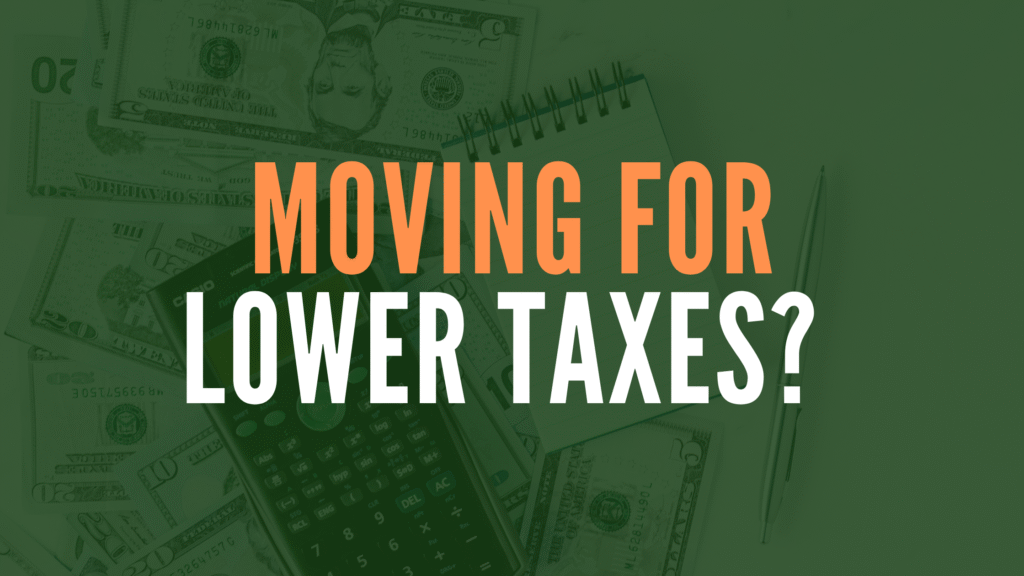If you’re thinking about relocating to a new state to lower your tax bill, you’re not alone. With more professionals working remotely and retirees seeking better financial conditions, the tax impact of your state of residence has become a hot topic.
While it may seem like moving to a state with no income tax is an obvious win, the reality is more nuanced. To make a smart financial decision, you need to look beyond income tax and assess the full picture, including property taxes, sales taxes, and even potential death taxes.
Yes, states like Texas, Florida, and Nevada offer zero personal income tax, which sounds appealing. But other state and local taxes especially property taxes can quickly erase those savings.
Example: Texas vs. Colorado
Let’s compare a move from Colorado Springs, CO to Dallas, TX.
- Colorado has a flat state income tax rate of 4.63%.
- Texas has no personal income tax.
Sounds simple, right? Not quite.
In Colorado Springs, the property tax rate is about 0.49% of assessed value. So, on a $500,000 home, you’d pay around $2,450 in property tax. If your income is $200,000, your Colorado state income tax would be $9,260, for a total of $11,710 in state and property taxes.
In Dallas, property taxes on the same $500,000 home could run around $21,200 annually, or $17,800 if you’re over 65 or a surviving spouse. There’s no income tax but you may still end up paying more overall due to high property taxes.
Don’t just compare income tax rates. Always evaluate property taxes, sales tax rates, and your total cost of living before relocating for tax savings.
Consider Your Long-Term Tax Position
Taxes vary not just by state, but by county and city, and your situation can change significantly based on:
- Whether you own or rent
- The value and location of your home
- Your age (some states offer senior exemptions)
- Your estate plan, especially if state death taxes apply
- Your retirement income, which may or may not be taxed
Be Careful with Domicile Rules
If you’re making a permanent move to a new state, it’s crucial to formally establish legal domicile in your new state and terminate domicile in your old one. Otherwise, you could face dual taxation claims.
Each state defines domicile differently, but in general, it’s your permanent home, the place you intend to return to and reside in indefinitely.
To clearly establish domicile:
- Update your driver’s license and voter registration
- File a Declaration of Domicile (where applicable)
- Spend the majority of your time in the new state
- Keep documentation showing your intent to remain
- Move your financial accounts and professional licenses
Failing to sever ties properly could result in two states claiming you owe income or even estate taxes especially in the event of death.
A Side Note: Lifestyle Still Matters
Taxes aside, don’t forget to weigh the quality of life in your potential new home. Cost of living, healthcare, proximity to family, and yes even the restaurant scene can impact your decision. (And for the record, we hear the food scene in Dallas is pretty great.)
Moving to a new state can offer real tax advantages, but only if done strategically. You need to evaluate the total tax burden, understand domicile laws, and plan for both your present lifestyle and future estate.
At BASC Expertise, we help individuals and business owners make smart moves both physically and financially. If you’re considering relocating, let’s have a conversation before you pack the boxes.
Have questions about state tax rules or domicile requirements?
Let BASC Expertise help you evaluate the move.
📞 (480) 355-1398 | 🌐 bascexpertise.com/contact

